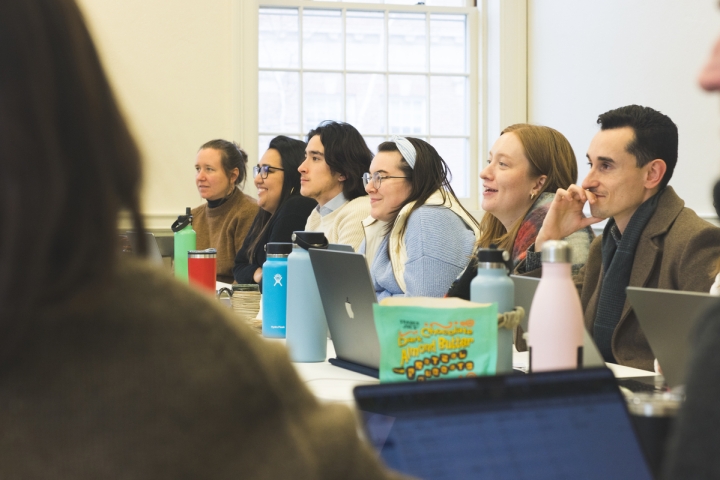The Dartmouth undergraduate class of 2028 has begun to take shape as the Admissions Office extended the first offers of acceptance to 606 students last week as early decision results were released.
The acceptances were drawn from a record-setting pool of 3,550 applicants, an 18% increase over the previous high set last year. It marks Dartmouth’s fifth record early decision pool since 2017.
Lee Coffin, vice president and dean of admissions and financial aid, was struck by the breadth and depth of this year’s early pools.
“The early volume was palpably different and very dynamic,” Coffin said. “We considered a bigger, deeper, and very talented pool of students who had declared Dartmouth as their first choice.”
He added, “It was unquestionably the best ED pool I have seen in my eight years at Dartmouth.”
The acceptance rate of 17% is a historic degree of selectivity for early decision.
In a separate process, earlier this month, 74 students matched with Dartmouth through the QuestBridge National College Scholarship Match partnership, an access program that introduces high-achieving students from low-income backgrounds to leading institutions of higher education. The match cohort was drawn from a pool of 1,477 candidates, an increase of 17.3% over the Class of 2027. The 74 “matches,” all of whom are eligible for a federal Pell Grant, represent a new high for Dartmouth.
Accepted students in both early cohorts are drawn from 47 U.S. states, the District of Columbia, Puerto Rico, and 47 nations. When ranked, 97% rank among the top 10% of their high school class, with a record 147 currently ranked first or second in their class. While Dartmouth’s pause on required standardized testing remains in effect for the Class of 2028, 75% of those admitted included scores with their application, with the middle-50% scoring between 1480 and 1560.
More than one in five, or 22%, will be in the first generation of their families to attend college, a record high.
At the time decisions were released last week, more than half qualify for a need-based scholarship, and 22% are eligible for a financial aid package that requires no parent contribution. “That is a strong indication of the socioeconomic diversity that populates the early cohorts,” Coffin said.

Both early rounds were the first since the U.S. Supreme Court’s ruling in June significantly limiting how colleges and universities may consider race in their admissions policies and practices. In response to the decision, Dartmouth’s admissions officers do not have access to race and ethnicity data, and will not track and report aggregated racial demographics during the active selection process.
Dartmouth maintains its longstanding commitment to holistic review, which was first implemented in undergraduate admissions in 1921. Among other changes in response to the Supreme Court’s decision, Dartmouth introduced additional essay questions in which applicants were given the opportunity to provide additional information about their individual backgrounds, experiences, or perspectives.
Dartmouth expects to enroll an entering class of 1,200 students in September. The deadline for regular decision applications for the Class of 2028 is Jan. 2.


